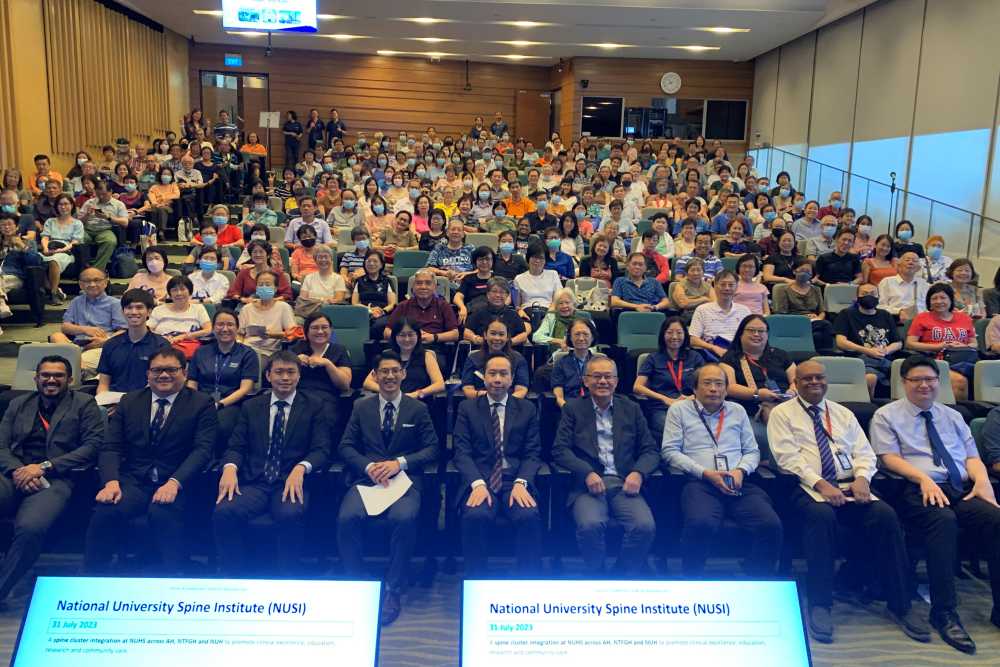The National University Health System (NUHS) has introduced the National University Spine Institute (NUSI), a new specialist institute dedicated to treating spinal diseases and deformities.
This initiative aims to meet the growing need for specialised spine care in Singapore’s ageing population. It takes a comprehensive and multidisciplinary approach to achieve this.
Leadership and Vision
NUSI is set to be led by Associate Professor Gabriel Liu. It is committed to improving standards in spine care by focusing on patient-specific treatment plans. A/Prof Liu emphasised the institute’s approach to sub-specialise within spine practice and streamline patient care processes across the NUHS cluster.
A/Prof Liu said: “NUSI is not just about transforming spine care. We want to empower individuals with the knowledge and resources they need for better spine health. Through our comprehensive public engagement initiatives and community outreach, we hope to foster awareness, education and prevention that will better improve spine health among the community.”
Addressing the Demographic Shift
With Singapore on track to become a “super-aged” nation by 2026, age-related conditions related to this area are expected to increase. NUSI’s response includes the adoption of SpineAI, a deep learning model that aids in efficiently identifying spinal abnormalities. This highlights the institute’s reliance on technological advancements for diagnosis and treatment.
NUSI Fellows Best Practice and Research Conference
The NUSI Fellows Best Practice and Research Conference showcased the institute’s commitment to international collaboration and knowledge exchange. Held on 20 March, it attracted specialists worldwide and facilitated discussions on the latest surgical techniques and research findings. NUSI spine fellows also attended this event. Through NUH, they seek to gain exposure to Singapore’s healthcare industry and hone their skills in their specialties through the hospital’s clinical fellowship scheme. The NUSI Spine Fellow Chapter is part of the NUH Global Fellows Alliance, which boosts more than 900 clinical fellows.
On 21 March, some 35 local and international doctors also attended the NUSI Advanced Cervical Spine Surgery Cadaveric Course. The course guided them through managing complex cervical spine conditions with lectures and discussions, hands-on cadaveric dissections, and live surgery demonstrations.
Public Spine Symposium
Additionally, NUSI strongly emphasises public engagement, as evidenced by the Public Spine Symposium. Held on 30 March, this event educated the public about spine health. It offered free informational sessions and scoliosis and osteoporosis screenings. It also featured insights from Scoliosis Support Singapore.
Comprehensive Spine Care Model
NUSI combines the expertise of orthopaedic spine surgeons, neurosurgeons, and rehabilitation clinicians to offer patients a seamless care experience. This includes a range of treatments, from pain management to advanced surgical techniques, aiming to address the full spectrum of spinal health needs.
Conclusion
Establishing the National University Spine Institute represents a step forward in spine care for Singapore. It highlights the importance of specialised treatment, research, and community education in addressing the challenges of an ageing population and complex spinal conditions.
Caption: Under the leadership of Associate Professor Gabriel Liu (front row, fifth from left), the National University Spine Institute (NUSI) aims to set new standards in care through a patient-centric approach. NUSI has a multidisciplinary approach that involves orthopaedic spine surgeons, neurosurgeons and rehabilitation clinicians across NUHS, to provide a seamless patient experience across the full spectrum of care.

